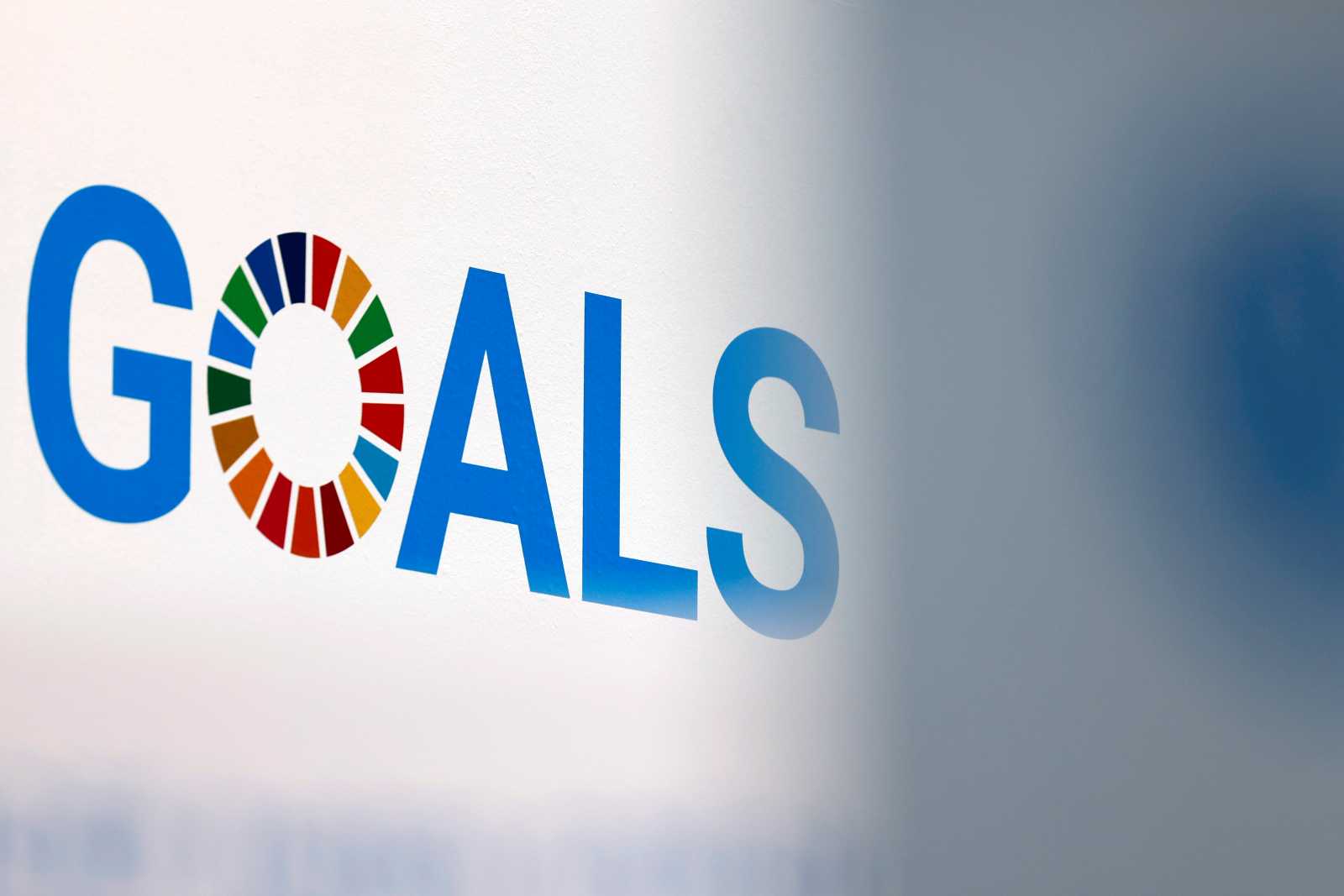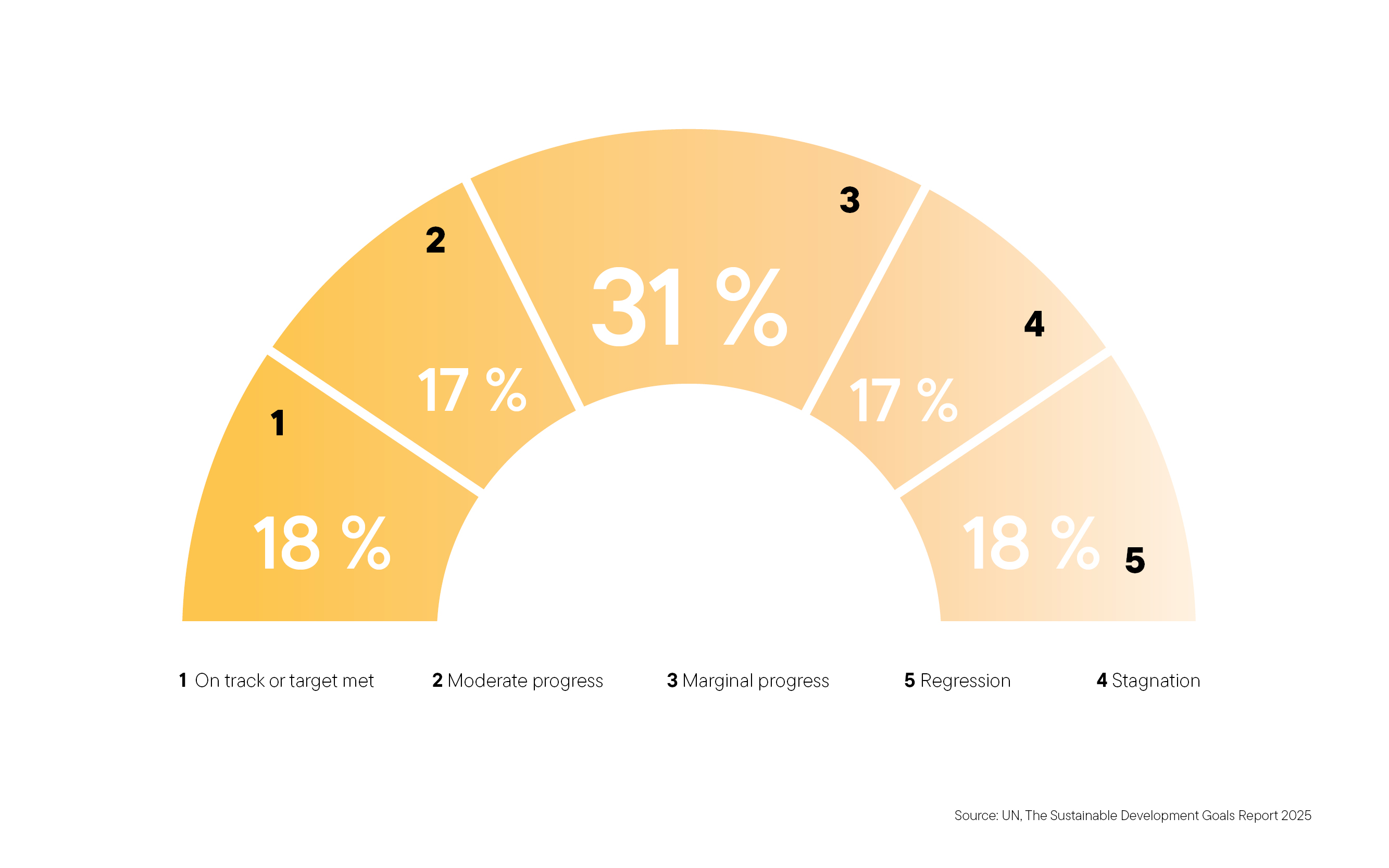Millennium agenda
Progress too slow
The international community committed to the Millennium Development Goals (MDGs) at a UN summit in 2000. The aim is to achieve eight goals and 18 sub-goals, measured by indicators, by 2015. An example is universal primary education. According to the UN, primary school enrolment has risen worldwide from 80 % in 1991 to 88 % in 2005.
The UN’s official mid-way MDG report identifies other areas of progress. For example, the proportion of the world’s population that has to get by on the equivalent of one dollar per day has declined from 32 % (1.25 billion people) in 1990 to 19 % (980 million people) in 2004. If this trend continues, the target of halving that share will be reached in most parts of the world. Even south of the Sahara, the poverty rate has fallen by almost six percent since 2000. The UN document also cites positive developments in the areas of gender equality and child mortality.
On the other hand, some serious concerns are raised. According to the UN, more than half a million women die every year from preventable complications during pregnancy and childbirth. More than 50 % of the people in developing countries do not have basic sanitation. Furthermore, the UN document points out the potential catastrophic consequences of climate change. UN Secretary General Ban Ki Moon therefore stresses in the foreword to the report that there is still much to be done. He bemoans the fact that official development assistance worldwide has not dramatically increased since 2004.
Heidemarie Wieczorek-Zeul, Germany’s development minister, takes a similar view. She speaks of clear signals that “we are making good progress on many of the targets”. On the other hand, the international community has to step up the commitment to Africa: “Otherwise we will not be able to reach the Millennium Development Goals.” She too emphasises the importance of health care. “Especially with regard to the fight against HIV/AIDS, we unfortunately still have a long way to go.”
In his study titled “Armutszeugnis” (“evidence of poverty”), Jens Martens of the Global Policy Forum, an independent think tank, gives examples of countries that have made significant progress in single MDG areas in the past seven and a half years. Cambodia, for instance, has made headway in primary school education, Rwanda in gender equality, Eritrea in reducing infant mortality, and Morocco in improving health care for mothers. These examples show what is possible if governments are determined and have the necessary resources.
Nonetheless, Martens puts positive trends – as can be seen in the reduction of extreme poverty or access to clean drinking water – into perspective by pointing out that earlier, more ambitious goals in these areas were missed. Some countries, especially in Africa, have even slipped further from the targets. Martens identifies “dramatic” deficiencies in almost all world regions in terms of ensuring environmental sustainability. Moreover, he notes a lack of progress in the eighth Millennium Development Goal, which is the most difficult to measure: a global partnership for development. This Goal is about almost all controversial North-South issues, from world trade to the debt crisis. Roland Bunzenthal







